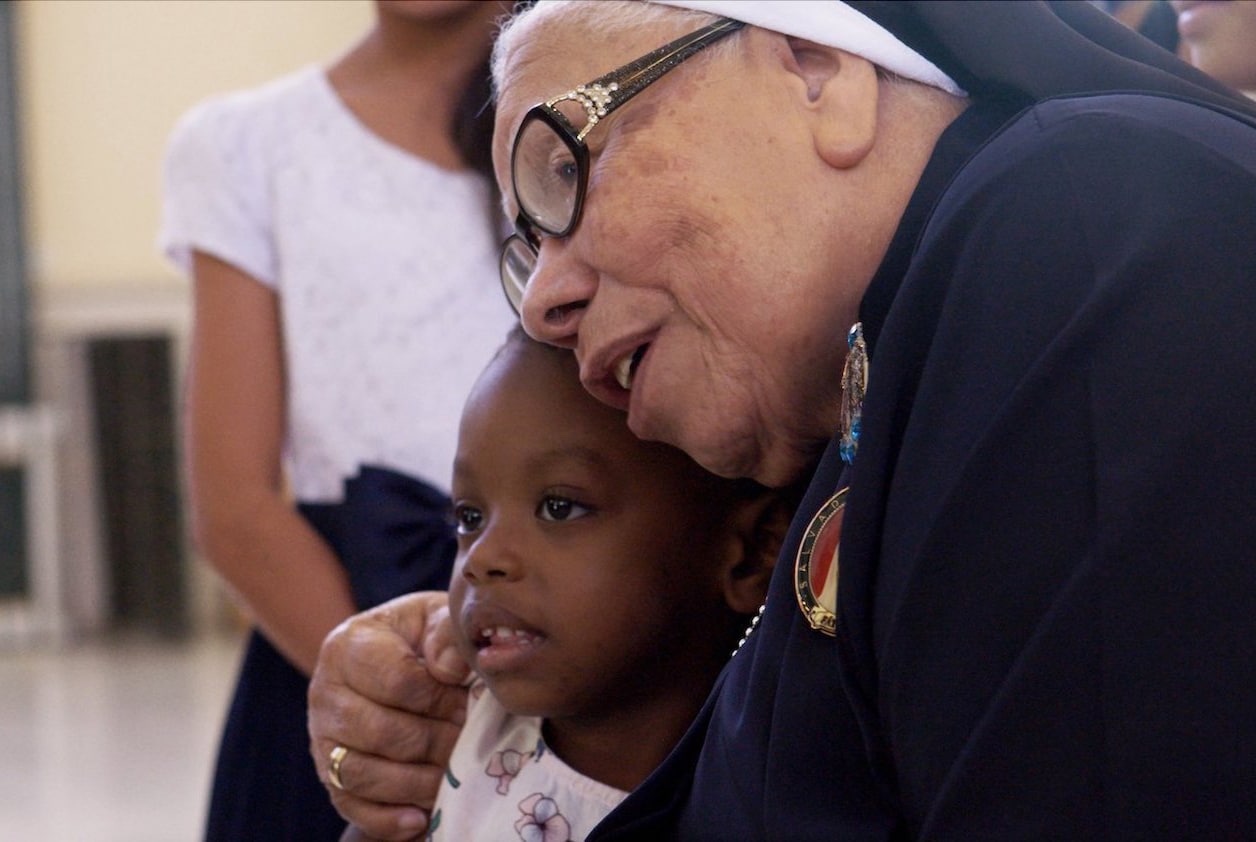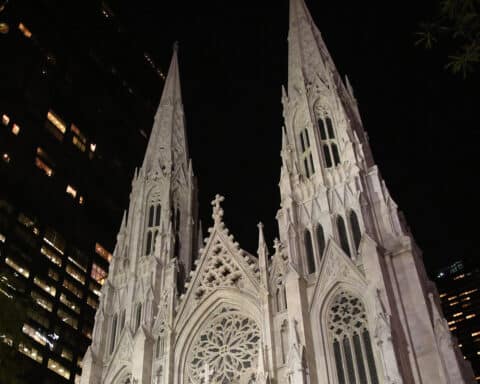(OSV News) — Occasionally, there comes along an extraordinary person whose life of faith and love touches thousands of lives for the better. “With This Light,” a documentary releasing in theaters Aug. 11 and then to streaming platforms, tells of the apostolic dynamism of Sister Maria Rosa Leggol, a Franciscan sister known as the “Mother Teresa” of Honduras. She died in 2020 before the film was completed.
With only a fourth-grade education, Sister Maria Rosa created a network of orphanages, schools, medical clinics, and youth programs bringing light and hope to more than 87,000 children during her lifetime. She saw the poverty and violence in which Honduran children were living, many of whom were on the streets. Buoyed by God’s call to do something in view of the desperate human plight before her, she started projects without asking for permission. A feisty and strong personality, Sister Maria Rosa says, “To work with God one has to be a bit naughty, a bit crazy.”
Origins of ‘With this Light’
“With This Light” came about through the entrepreneurial actions of executive producer and philanthropist Jessica Sarowitz of Los Angeles, who immigrated with her family from Honduras to Chicago when she was 8 years old. Her family traveled back to Honduras periodically for mission trips. On one such trip, she saw Sister c bossing everyone around. When Sister saw Sarowitz, she came over and gave her a big hug, one that Sarowitz says she will never forget. “I felt so loved at that moment,” Sarowitz recalls. When Sarowitz went back to Honduras as an adult, she asked Sister to put her to work. Sarowitz knew she needed to tell others about Sister Maria Rosa and her life-changing mission.
In the film’s opening, Sister Maria Rosa tells the young people to write on a paper all that troubles them, then throw the paper into the bonfire — to burn away the past, to forget, and to “start living a new life, a life full of light.” The film proceeds to show us the life, work and spirituality of Sister Maria Rosa in her own words and in the lives of those whom she touched.
Centering on two teenage girls who grew up in poverty and abusive situations, the film provides a perspective on the effects of Sister’s work in their lives. Their heart-breaking stories reveal the complexities of life when poverty and violence envelop their towns. Both young women struggle to lift themselves out of the cycle of suffering to find new hope and opportunities. “Even when everything is going wrong,” Sister Maria Rosa says, “we have to give them a little bit of hope, a little bit of trust. We have to fight so they can find that lost kingdom. That is what I have to worry about every day.”
‘My path is to open paths’
Constantly singing and kissing a large crucifix that never leaves her hands, Sister Maria Rosa goes about sharing love with everyone she meets. She says, “My life is about how to provide relief to others so they can improve their situation.” She humbly sees her life as a conduit of grace when she says, “My path is to open paths so others can walk. I just can’t stop. I keep moving forward and they come along that path.”
Sarowitz asked Sister three times to tell her story; the feisty nun conceded only when Sarowitz told her it would further her work.
Producer and Co-Director Nicole Bernardi-Reis (with Laura Bermudez) shares that Sister Maria Rosa is an example of “faith in action.” Seeing this project as a way for her to reconnect with her own Catholic upbringing, Bernardi-Reis says that “to see a 90-year-old woman so committed to her faith in God that she worked to the day she died, blows away all the barriers that we sometimes put in front of ourselves for doing some good in the world.”
When Sister is not making the rounds visiting people, she sits in the religious statue-speckled convent watching a soccer match while clutching her rosary and cheering on her favorite team. If she is not working, she is praying for all those she encounters. And her prayers become a salve for human suffering.
A call to action
Sarowitz explains Sister’s core message as, “We’re not all good or all bad and therefore you can’t turn anybody away. We have to have patience with each other and she demonstrates this over and over again — how to humbly show up to transform people.”
Bernardi-Reis shares how the film challenges us to action, “What’s stopping me from doing my own part?” It’s about, “a simple act of kindness and love and being open to everyone wherever they are at … because you might touch them in a way that changes their lives.”
The film was shown to Pope Francis who greatly enjoyed Sister Maria Rosa’s tenacity and faith. The producers asked if they could begin Sister’s cause for sainthood. Pope Francis contacted the cardinal prefect of the Dicastery for the Causes of Saints to advance her cause.
We pray for all who are caught in the throes of poverty, human trafficking, violence and suffering through the intercession of Sister Maria Rosa Leggol who understood Jesus’ call, “As you did it to one of the least of these my brothers, you did it to me” (Mt 25:40).





